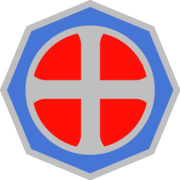Draft:Nasjonal Samling Kvinneorganisasjon
 | Draft article not currently submitted for review.
This is a draft Articles for creation (AfC) submission. It is not currently pending review. While there are no deadlines, abandoned drafts may be deleted after six months. To edit the draft click on the "Edit" tab at the top of the window. To be accepted, a draft should:
It is strongly discouraged to write about yourself, your business or employer. If you do so, you must declare it. Where to get help
How to improve a draft
You can also browse Wikipedia:Featured articles and Wikipedia:Good articles to find examples of Wikipedia's best writing on topics similar to your proposed article. Improving your odds of a speedy review To improve your odds of a faster review, tag your draft with relevant WikiProject tags using the button below. This will let reviewers know a new draft has been submitted in their area of interest. For instance, if you wrote about a female astronomer, you would want to add the Biography, Astronomy, and Women scientists tags. Editor resources
Last edited by AlexandraAVX (talk | contribs) 41 days ago. (Update) |
NS Kvinneorganisasjon | |
|---|---|
 | |
| Founder | Marie Irgens |
| Founded | 1934 |
| Dissolved | May 1945 |
| Ideology | Nationalism Nazism Fascism Anti-communism |
| Party flag | |
 | |
Nasjonal Samlings Kvinneorganisasjon, abbreviated NSK or the NS Kvinneorganisasjon , was a special organization for women over the age of 18 associated with the Norwegian Nazi Party Nasjonal Samling (NS) before and during the Second World War. NKS was formed in 1934, shortly after the Nasjonal Samling's foundation the previous year. The Nasjonal Samling Women's Organization was closed down when the German occupying power surrendered and the Nasjonal Samling board was deposed upon liberation in May 1945. The NSK was one of the party's three major special organisations, together with the youth association NSUF and Hirden. It had an armed branch, Kvinnehirden.


Credit: Riksarkivet

History
[edit]NSK originally sprung from Maria Quisling's circle of acquaintances, but soon became a permanent part of the NS organisation.[citation needed]
The head of NSK was from 1934 the voice teacher Marie Irgens, then Øyvor Hansson and from 1941 until the end of the war the peasant women's leader and Tidens Tegn journalist Olga Bjoner. Bjoner, who took the title of national leader from 1944, also led Kvinnehirden, where the most enthusiastic young people joined. At most, NSK had around 16,000 members, that is, roughly a third of NS's 55,000 registered members. NSK ran maternity schools, housekeeping centers and sewing studios around the country. NS women also enlisted as "front sisters".[citation needed]
In 1934, Halldis Neegaard Østbye became propaganda leader in NS Kvinneorganisasjon.[citation needed]
References
[edit]- ^ Lov av 6. juli 1933 nr. 14, og senere Lov av 13. mai 1937 nr 1: Lov om forbud mot å bære uniform m.v.
- ^ Jamfør søkbare digitalkopier av Program for Nasjonal samlings 8. riksmøte i Oslo i Oslo 25-27 september 1942 og NS 8. riksmøte (1943)
